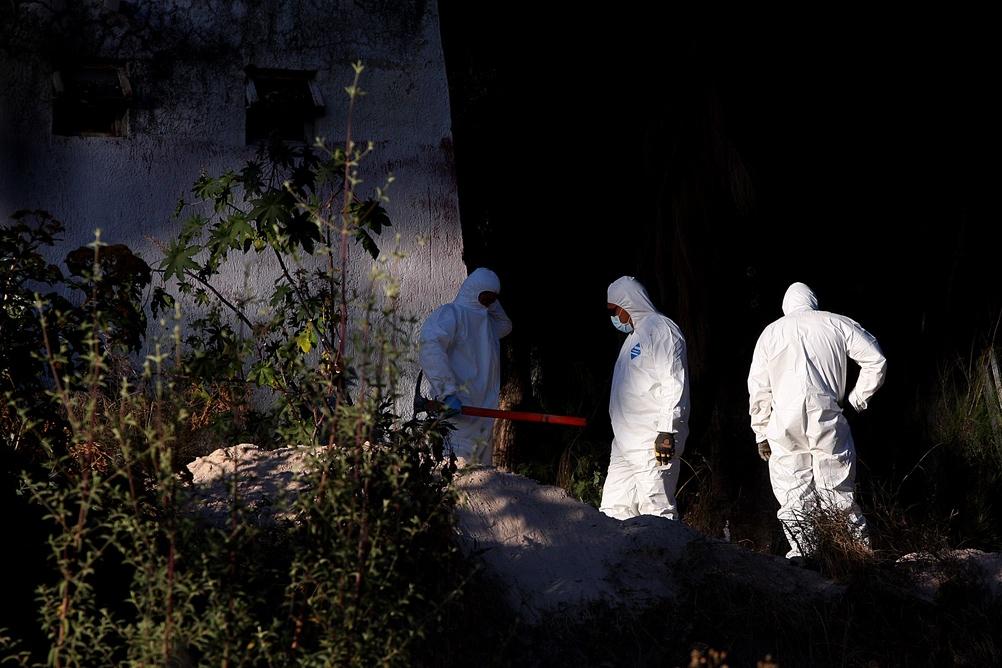Caciques, not cartels, kill in Mexico this time
Forensics experts examine the makeshift grave in Guadalajara.
Three bodies were found buried in Guadalajara on Thursday.
And it's believed the cartels didn't do it. So who killed them?
Student organizations in Mexico, which are violent and organized, started up in the 1960s.
They still exist now, linked to local political bosses known as caciques, and the groups help influence political rivals or get into extortion rackets.
The group in question over these deaths is the Federation of Guadalajara Students.
The FEG demands protection money from people who sell food and soft drinks around the high schools, according to the Associated Press. Recently, five people had complained about that extortion. Shortly afterward, they had disappeared.
It's unclear still whether the three bodies found belonged to any of the five missing. Per the AP:
Protection money was what apparently prompted fried-dough vendor Armando Gomez, his son and three friends from high school to go to the FEG on Friday to try to negotiate down the FEG's demand for increased payments.
Somehow this is more disturbing than the cartel murders.
OK, a lot of these murders have been tragic, cruel and disturbing. But the cartels — by way of explanation, not justification, mind you — are fighting a war to maintain, or regain, control of supply routes to ship their products in a multibillion-dollar industry. They are brutal because they want to keep their grip on this massively profitable global business.
These so-called student federations, are running petty extortion rackets. And they are, allegedly, murdering fried-dough vendors for resisting efforts to cut into their meager profits. Not even protesting the the system itself, but the increased fees that the FEG recently put in place.
They accept the system, which is inherently illegal and unfair. They just wanted to pay a little less.
The AP found a political analyst to explain these group's heightened power:
Political analyst John Ackerman said Mexico's current political atmosphere, with tension heating up before the July presidential election and a lame-duck central government distracted by the fight against drug cartels, may have emboldened such local groups.
"Cacique power is alive and well in Mexico," said Ackerman, of the legal research institute at Mexico's National Autonomous University. "This is another aspect in which democracy is still incomplete in Mexico."
Apparently.
The article you just read is free because dedicated readers and listeners like you chose to support our nonprofit newsroom. Our team works tirelessly to ensure you hear the latest in international, human-centered reporting every weekday. But our work would not be possible without you. We need your help.
Make a gift today to help us reach our $25,000 goal and keep The World going strong. Every gift will get us one step closer.
